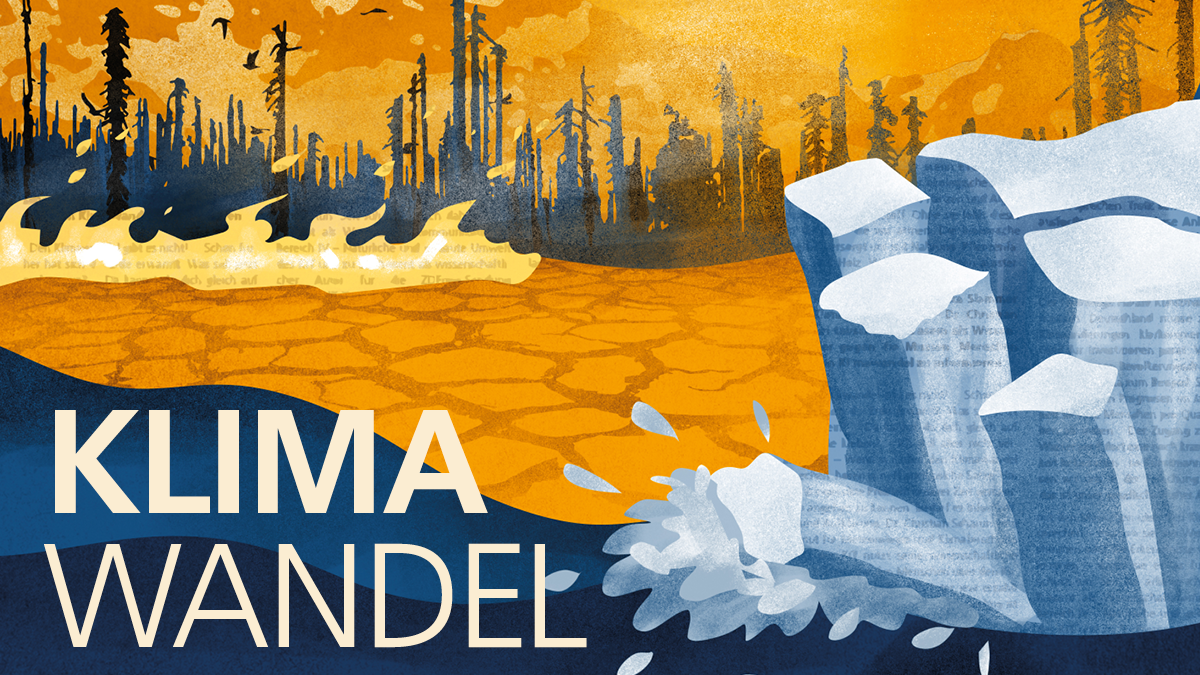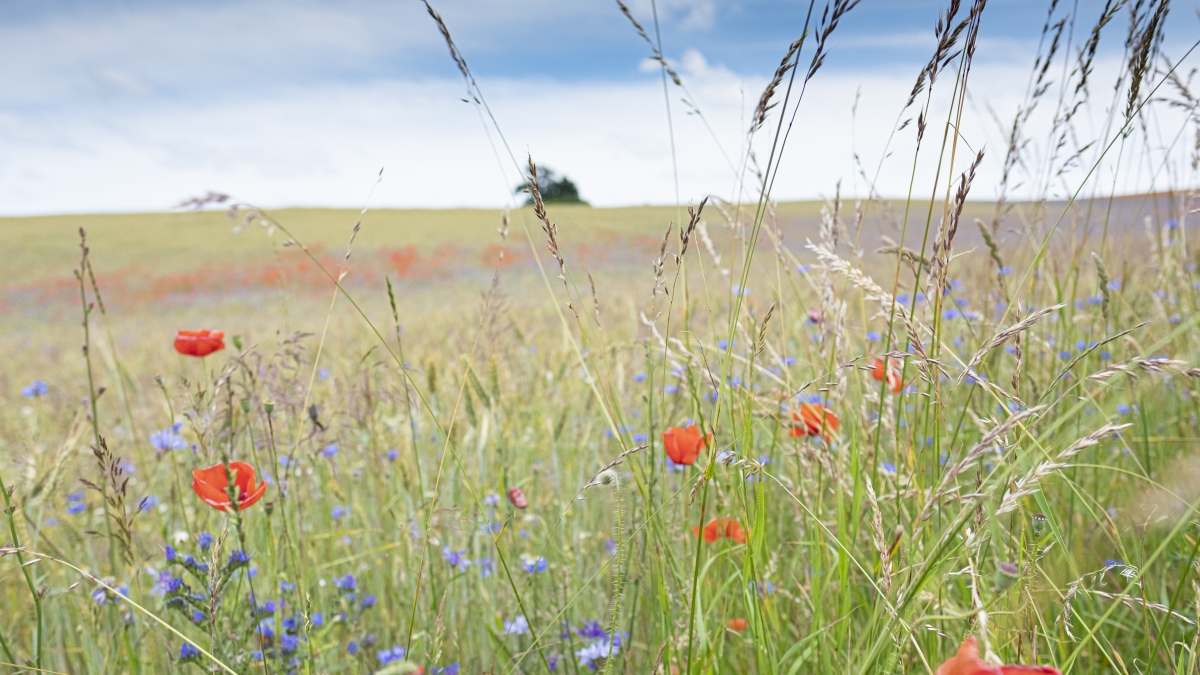"We Have to Manage Two Crises"
Numerous microorganisms, fungi, plants, and animals result in a unique species diversity on Earth. They contribute to humans being able to live in a stable climate and to natural cycles working well. However, climate change also changes ecosystems and biodiversity. Scientists at Karlsruhe Institute of Technology (KIT) research, how climate protection and nature protection can be thought together.
“Climate change affects species diversity. There is increasing evidence of this,” says Professor Mark Rounsevell insistently. “The effects are huge, as humans depend on biodiversity.” Rounsevell heads the Land Use Change and Climate Group at KIT’s Institute of Meteorology and Climate Research. Asked for the consequences of species extinction, he finds clear words: “When an ecosystem loses species, it will no longer work. Then, nature can no longer provide the services vital to us humans.”
Biodiversity Regulates the Climate System
Presently, the increase in temperature caused by humans is moving warmer climate zones further north and south, Rounsevell explains. This changes the environment of individual species. To survive, they have to move together with their climate zones, as all species have certain needs in terms of temperature, air humidity, dryness, or water quantity in the system. “Animals are mobile, but plants are slower. They can only move by seed dispersal. Some species will therefore become extinct, as they cannot adapt that quickly,” the environmental scientist explains.
But what happens exactly when some species disappear and the ecological cycle is interrupted? “Plants and algae produce oxygen. Without them, it would be lacking in the air we breathe. Biological diversity supplies us with food, plant fibers, and wood. When insects species die, it will affect birds that feed on them and it will also affect pollination of plants and, hence, harvests,” Rounsevell warns.
At the same time, biological diversity regulates the climate system, because it takes up carbon dioxide from the atmosphere and stores carbon in plants and soils. Rounsevell therefore concludes that there are two environmental crises that have to be managed jointly. “Without biological diversity, climate change would be much stronger, that is the decisive point.” The world’s ecosystems absorb about a quarter of the greenhouse gas emitted by humans into the atmosphere.
"Without biological diversity, climate change would be much stronger."
- Prof. Mark Rounsevell
Water Pollution Due to Lacking Plants
Professor Wolfgang Wilcke, who heads the Geomorphology and Soil Science Group of KIT’s Institute of Geography and Geoecology (IfGG), also conducts research into biodiversity. “The findings obtained from our research projects reveal that biodiversity is both driving and driven by environmental change. It is a very complex interaction,” the Professor explains. In the “Jena experiment,” for instance, Wilcke and his team studied the effects of biodiversity in grassland and in particular the relationship between species diversity and the nitrogen and phosphorus cycle.
“In our long-term project, we proved that when species diversity is reduced, these elements escape the cycle and enter the groundwater and surface water. When grassland is composed of various plants with different root depths, nitrate filtration is much better. This means that less diversity increases the risk of water pollution,” Wilcke says. Moreover, better nutrient retention increases biomass, removing carbon dioxide from the atmosphere. Due to its wide scope, the Jena experiment proves that loss of species diversity has negative impacts on many individual components and processes in ecosystems. “Biodiversity makes our environment more resilient. It helps us better adapt to climate change,” Wilcke says.
“Biodiversity makes our environment more resilient. It helps us better adapt to climate change.”
- Prof. Wolfgang Wilcke
Mixed Forests as Air Filters
In another project focusing on biodiversity exploratories with different forms and intensities of forest and grassland use, the IfGG group studied the importance of species diversity to nutrient cycles. Again, the positive effects of biodiversity were obvious. “We found that different tree species absorb more nitrogen from the atmosphere than a monoculture. This means that when forests are richer in species, less nitrogen reaches the ground and enters groundwater. The reason is that forest tops rich in species are also rich in structure. They consist of several levels with different leaf positions and surface shapes, as a result of which filtration is better,” Wilcke explains.
Better nitrogen retention also improves the absorption of carbon dioxide from the atmosphere and slows down climate change. The project also revealed that forests rich in species can store carbon and, hence, remove it from the atmosphere for a longer time. “This means less carbon dioxide in the atmosphere.”

Issue 3/2023 of the research magazine lookKIT focuses on climate change.
Read MagazineThinking Species Protection and Climate Protection together
Which measures can be taken by politics to counteract climate change and preserve biodiversity? Mark Rounsevell points out: “Politics often considers ecosystems to be the carbon sinks that are decisive for managing climate change. For this reason, reforestation is enforced and bioenergy is to replace fossil fuels. However, these measures might also have negative impacts on biological diversity.”
The reason: Land is limited. The more land is used for planting trees, for storing carbon, and for producing bioenergy, the less there is for food production. Consequently, we would have to import food, the cultivation of which might have replaced valuable ecosystems elsewhere. “We have to think biological diversity and climate change together. Otherwise, differences between the climate system and ecosystems would be neglected,” the researcher says. It is indispensable to preserve biodiversity, but also to decarbonize economy and phase out of fossil fuels, and to reduce the consumption of resources and energy, he adds.
Heike Marburger, September 25, 2023

